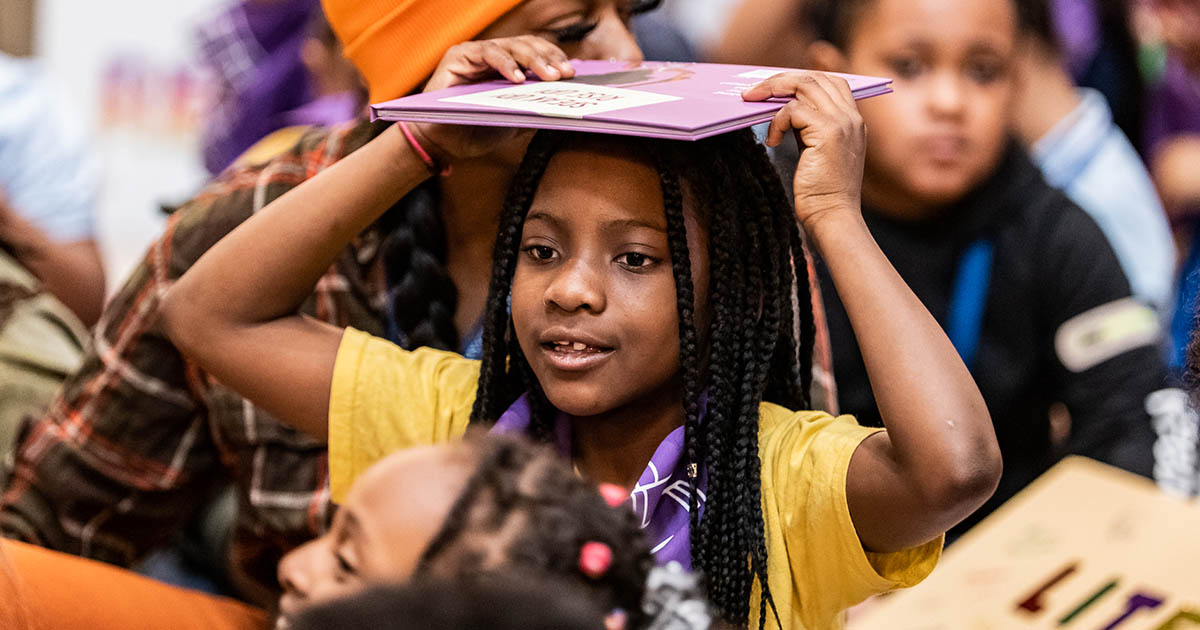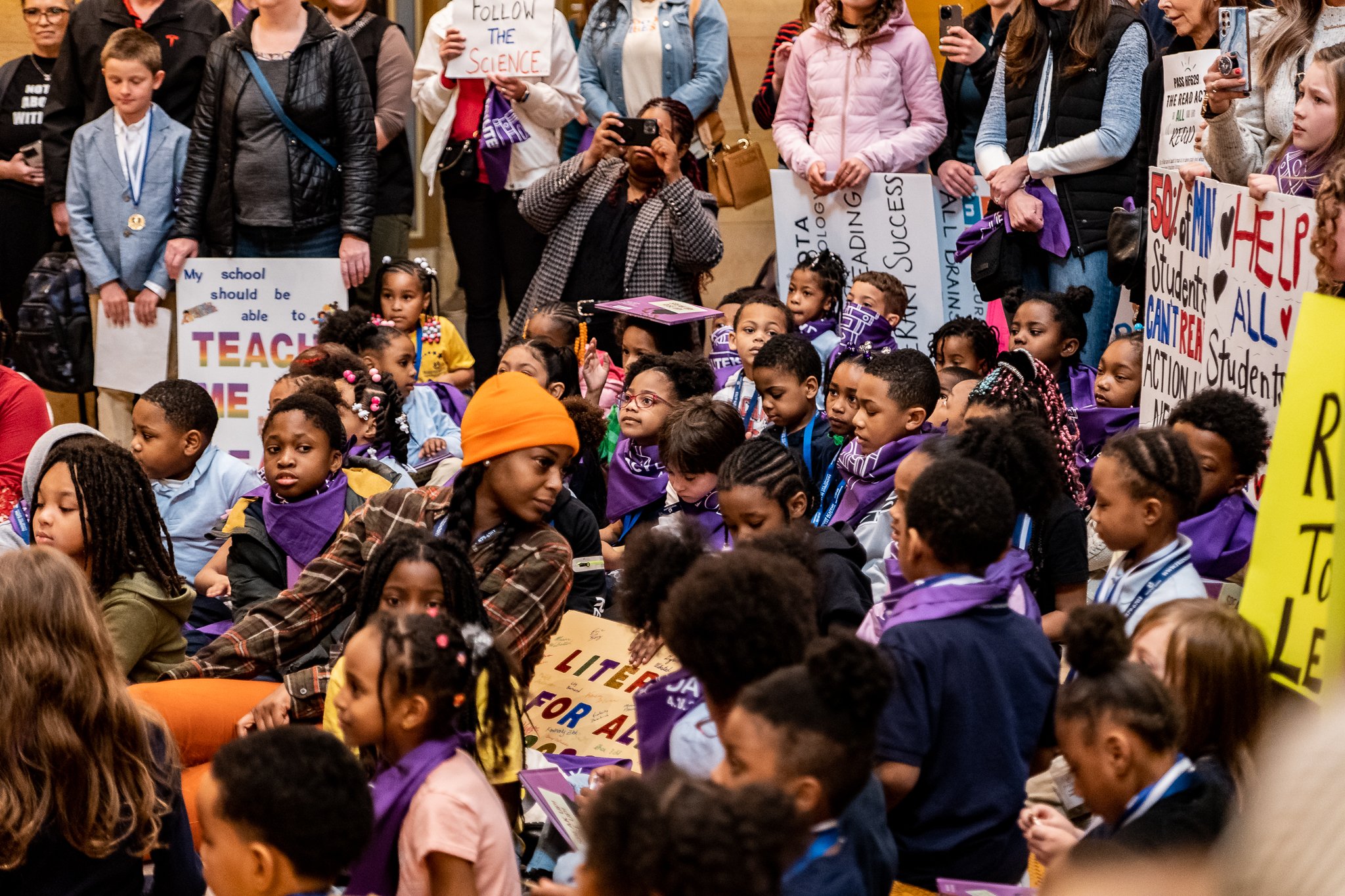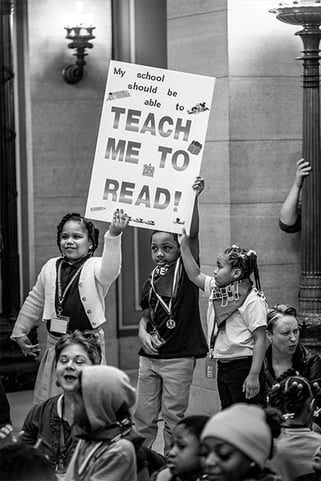
Apr 21, 2023 1:41:47 PM
Editor's note: This article was updated August 6th, 2024.
At the Minnesota capitol in St. Paul, hundreds of people–parents, children, educators, community leaders and elected officials–came together this week to insist their schools embrace the science of reading.
After decades of inaction, the READ Act would provide schools across the state with a menu of approved, evidence-based reading curriculums and funding to implement them, coupled with accountability to ensure all young children are reading on level by the end of third grade. The act also focuses on professional development to give teachers the tools and support they need to implement these changes.
"It's about understanding new ways of delivering that may challenge us in the way we've done things in the past, but we know that it can make a difference."
— Ed Post 🎓 (@edu_post) April 19, 2023
Minnesota governor @GovTimWalz discusses Science of Reading based curriculum and teacher training on MN #Literacy Day at… pic.twitter.com/y4hVeLRp84
Smiling young scholars, proud parents, community activists, and legislators gathered in a show of support for the READ Act and called for the funding and implementation of evidence-based reading instruction for all Minnesota students. It was a joyful day in the capitol rotunda, and the spirit of collaboration and progress was alive and well.
One of the most inspiring aspects of the day and the movement was the bipartisan, diverse coalition that came together to support better reading instruction. Members from organizations like Decoding Dyslexia MN and the National Parents Union encircled a group of students from the nearby Friendship Academy for the Arts. Everyone heard messages of support from students, activists, and state legislators.

Gov. Tim Walz, Lt. Gov. Peggy Flanagan, state representatives, and literacy advocates came together to share stories of the importance of getting reading right for kids, and supporting both students and educators along the way.
“This should be a very clear opportunity for folks to come together, regardless of political party, to say, we believe in our kids and we want to make sure that they have every resource they need to be able to build their brains, to be able to learn and to be able to read,” said Flanagan, noting that there were champions for the bill on both sides of the aisle.
Why The Science of Reading Matters for Kids
Only half of Minnesota’s public school students are currently reading at or above grade level. For years, literacy advocates have been sounding the alarm that outdated instruction is a big part of the problem. It’s also part of a national problem.
 Unfortunately, many teachers around the country were trained to read based on theories that don’t align with what we’ve learned over the last few decades about how the brain learns to understand text. The good news is there's a science to passing along these skills, and we can unlearn and relearn what works best to support young children’s growth as readers.
Unfortunately, many teachers around the country were trained to read based on theories that don’t align with what we’ve learned over the last few decades about how the brain learns to understand text. The good news is there's a science to passing along these skills, and we can unlearn and relearn what works best to support young children’s growth as readers.
Many teacher educators and educational publishers are mired in the status quo. “I realized when I went back to school and learned about the science of reading, that there are people who have a vested interest in keeping the system the same,” said teacher-turned-legislator Patricia Mueller, a Republican who represents a district southwest of Rochester. “And that is not OK. It’s not OK for half of our kids to not be able to read.”
"It's about understanding new ways of delivering that may challenge us in the way we've done things in the past, but we know that it can make a difference," said Walz.
The Read Act, which has been merged with Walz’s “BOLD Literacy Plan,” would provide Minnesota districts with professional development for educators, as well as coaching and curriculum aligned with the science of reading.
“This bill would enable educators to receive the professional development they need on the science of reading,” said Rachel Berger of Decoding Dyslexia Minnesota.
Change May Be on the Horizon
Improving reading instruction and aligning it to what evidence shows us about the best ways to help beginning readers decode text is a matter of justice for all students. And it’s especially important for students who have been denied education in many ways, including Black and Brown students.
 “No more ignoring the racial disparities in reading gaps. No more will only the privileged have the right to receive adequate reading instruction and intervention. Today is the day we ensure literacy for all,” said Nafeesah Muhammad, educator and deputy director of campaigns for Educators for Excellence.
“No more ignoring the racial disparities in reading gaps. No more will only the privileged have the right to receive adequate reading instruction and intervention. Today is the day we ensure literacy for all,” said Nafeesah Muhammad, educator and deputy director of campaigns for Educators for Excellence.
Versions of the READ Act are in both the Minnesota House and Senate. Given wide community and bipartisan support, a version seems likely to be funded in the upcoming omnibus bill.
“We've got four weeks, and there's not really if it's going to happen, it's when it’s going to happen,” said Governor Walz.
Joshua I. Stewart earned his bachelor’s in political science and Hispanic studies from St. John's University in Minnesota. After graduating in 2013, he taught at an English language academy in Seoul, South Korea for a year, before working as a K-12 social studies and ESL teacher at an international school in Clark, Philippines. He now works as a digital media manager for brightbeam and Ed Post. Josh is passionate about cultural exchange, uplifting voices of the unheard, and encouraging the next generation to adopt a global mindset.
Few issues in education spark more tension and debate than standardized testing. Are they a tool for equity or a burden on students? A necessary check on school systems or a flawed measure of...
Charter schools are public schools with a purpose. Operating independently from traditional school districts, they're tuition-free, open to all students, and publicly funded—but with more flexibility...
Despite the benefits of a diverse teaching force, prospective teachers of color fall out of our leaky preparation pipeline at every stage: preparation, hiring, induction, and retention. Here’s what...
Ed Post is the flagship website platform of brightbeam, a 501(c3) network of education activists and influencers demanding a better education and a brighter future for every child.
© 2020-2025 brightbeam. All rights reserved.
Leave a Comment